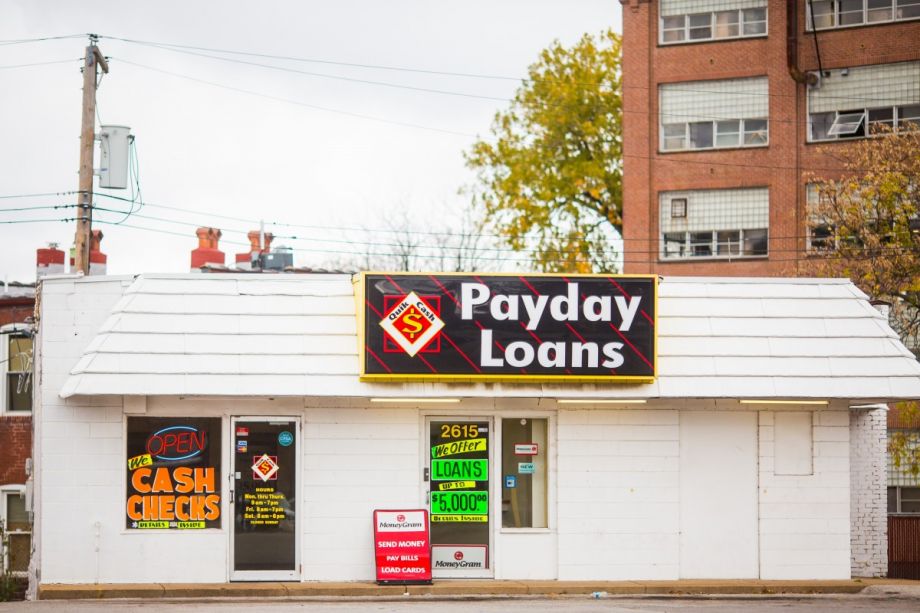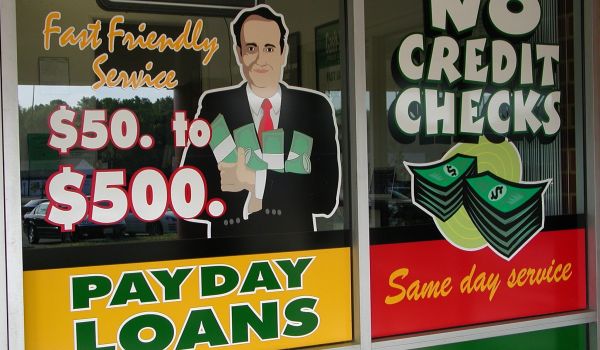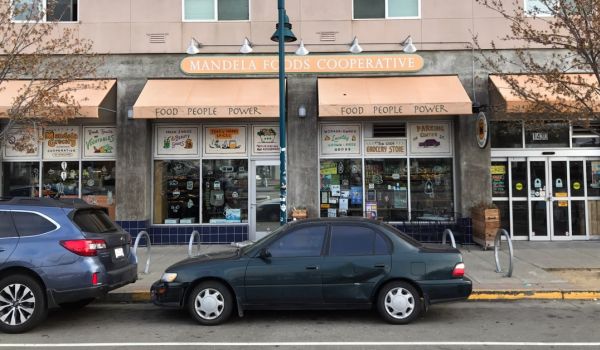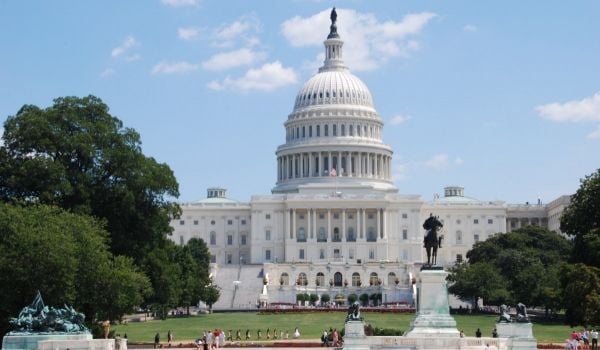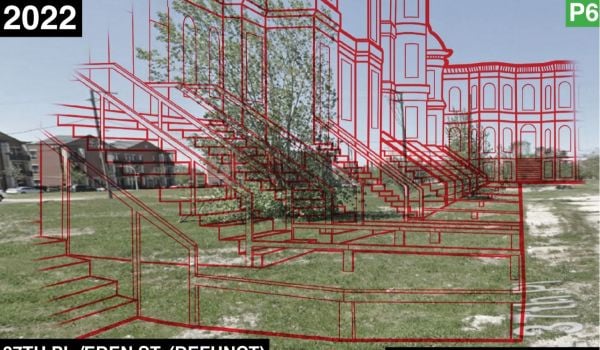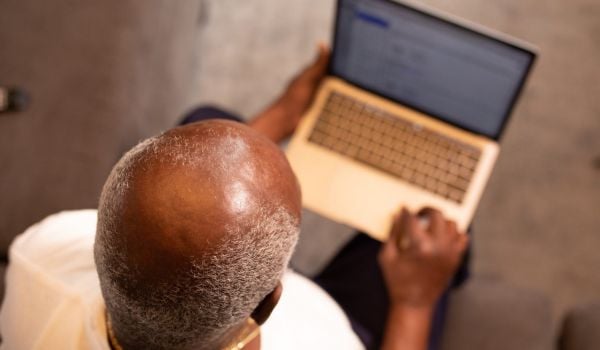Financial System Still Separate and Unequal, Study Affirms
A forthcoming study of Houston-area lenders finds that mainstream banks primarily feature white people in marketing and advertising materials, while payday lenders primarily feature Black and Latino people in their materials, the LA Times reported this week.
As the LA Times notes, the research doesn’t exactly break new ground.
Data has existed for years showing both that payday loan borrowers are disproportionately low-income and disproportionately Black and Latino, and that payday lenders tend to geographically target advertising and storefront locations in neighborhoods with high concentrations of African American, Hispanic and low-income households.
Researchers told the LA Times that they were expecting more Black and Latino faces in mainstream bank marketing materials, especially now — after a year of uprisings since the killing of George Floyd and Breonna Taylor at the hands of police officers as well as a pandemic that highlighted and exacerbated longstanding racial disparities.
The new findings, which will be published next month in the Emory Law Journal, come on the heels of Illinois joining 16 other states plus the District of Columbia in instituting an interest rate cap of no more than 36 percent on payday loans. Nebraska joined that list of states just last November.
The Illinois cap also applies to auto title loans. The average APR for an auto title loan in Illinois is 197 percent, according to statistics from the Illinois Department of Financial and Professional Regulation, while the average payday loan rate is 297 percent.
The Woodstock Institute, a Chicago bank watchdog group that helped craft the Illinois legislation, found that in Chicago, ZIP codes in communities of color represent 47 percent of the city’s population but have 72 percent of the city’s payday loans. Chicagoans were 13 times more likely to have a payday loan if they lived in the predominantly Black Austin neighborhood as compared to predominantly white Lincoln Park.
Finally, the Consumer Financial Protection Bureau, which was largely defanged and muzzled under the Trump Administration, has started staffing up again under a new Biden-appointed director. Its started to roll back Trump-era rules around debt collections that consumer advocates say threatened to harm consumers, and has put out signals that it will return to its pre-Trump positions on small-dollar loans such as payday loans.
Frankly, Some Franchisors Just Don’t Give a Damn
A report released from the office of U.S. Senator Catherine Cortez Masto of Nevada blasts the franchise industry for poor worker compensation and other shoddy labor practices, and calls out franchisors for roping in entrepreneurs with overblown promises, saddling them with debt and other liabilities before going bankrupt themselves.
In 2019, the Economic Policy Subcommittee of the Senate Committee on Banking, Housing and Urban Affairs held a hearing on economic mobility and heard from a witness who described troubling practices affecting businesses operated as franchises — practices consistent with what the Senator and her staff had heard from local press in Nevada. In the wake of that hearing, the Senator directed her staff to produce the new report, which includes a menu of legislative, regulatory and business reforms for Congress to consider.
According to the report, as of February 2020, 8.67 million people worked for as many as 785,316 franchise locations across the country — more than the number of people who work in construction, and roughly equal to the number employed in financial services.
Many franchisees finance their locations through loans guaranteed by the Small Business Administration. The new report suggests that the SBA should require franchise companies to disclose actual historic revenue data and store closing information to prospective franchise owners, who would be liable to repay the loan. It also suggests that the SBA should publish loan performance information by franchise brand and refuse to guarantee any loan to a franchise if the underlying franchise agreement includes known predatory terms such as mandatory arbitration, non-disparagement and non-disclosure clauses, or prohibitions against joining associations. The report also suggests that franchise brands with high levels of default should lose access to government-guaranteed loans.
Earlier this year, I reported on a new franchise model that attempts to rebalance the risks of starting up a new franchise location, including an internal-financing mechanism so that new franchise owners don’t need any external debt or personal wealth to open a new location. I also spoke with author Marcia Chatelain, whose new book, “Franchise: The Golden Arches in Black America,” released last year, documents the complicated history of franchise businesses and Black communities — or what she calls “the hidden history of the intertwined relationship between the struggle for civil rights and the expansion of the fast-food industry.”
Broadening the Not-So-Broadband
How’s your internet service? For an estimated 1.5 million New Yorkers, the answer is they don’t have any, neither at home nor through mobile networks.
Out in the rest of the country, things are similarly bleak, if not worse.
For years, some cities have been looking into financing their own municipal broadband networks and internet service providers. It’s seen as a way to help level the playing field for low-income households and small businesses and even revitalize regional economies. There are some noted successes, like Chattanooga. In Cleveland, an anchor institution-driven model created a successful nonprofit broadband internet service provider.
Some of the biggest believers in the power of municipal broadband are actually giant internet service provider corporations. They’re so threatened by the potential for municipal service providers to eat into their profits, they’ve lobbied successfully in many states to enact barriers or outright bans on municipally-owned broadband internet service.
But some recent good news — states are starting to push back. The number of states with municipal broadband restrictions fell from 22 to 18 over the past year, according to BroadbandNow, which tracks broadband access across the country.
The battle for the digital future is just heating up. Elon Musk recently started rolling out his “Starlink” satellite-based internet service, with 10,000 users signed up in its first six months — mostly in rural areas with limited land-based broadband access so far.
Beachfront Justice
A Black family bought land in Los Angeles County in 1912 for $1,225. The Ku Klux Klan chased them off that land in 1924, and the property was eventually turned over to the county. Today that land is in Manhattan Beach, and it’s reportedly worth $75 million. But now the county has reached a deal to transfer the land back to that family, WJLB radio in Detroit reports.
This article is part of The Bottom Line, a series exploring scalable solutions for problems related to affordability, inclusive economic growth and access to capital. Click here to subscribe to our Bottom Line newsletter.

Oscar is Next City's senior economic justice correspondent. He previously served as Next City’s editor from 2018-2019, and was a Next City Equitable Cities Fellow from 2015-2016. Since 2011, Oscar has covered community development finance, community banking, impact investing, economic development, housing and more for media outlets such as Shelterforce, B Magazine, Impact Alpha and Fast Company.
Follow Oscar .(JavaScript must be enabled to view this email address)



